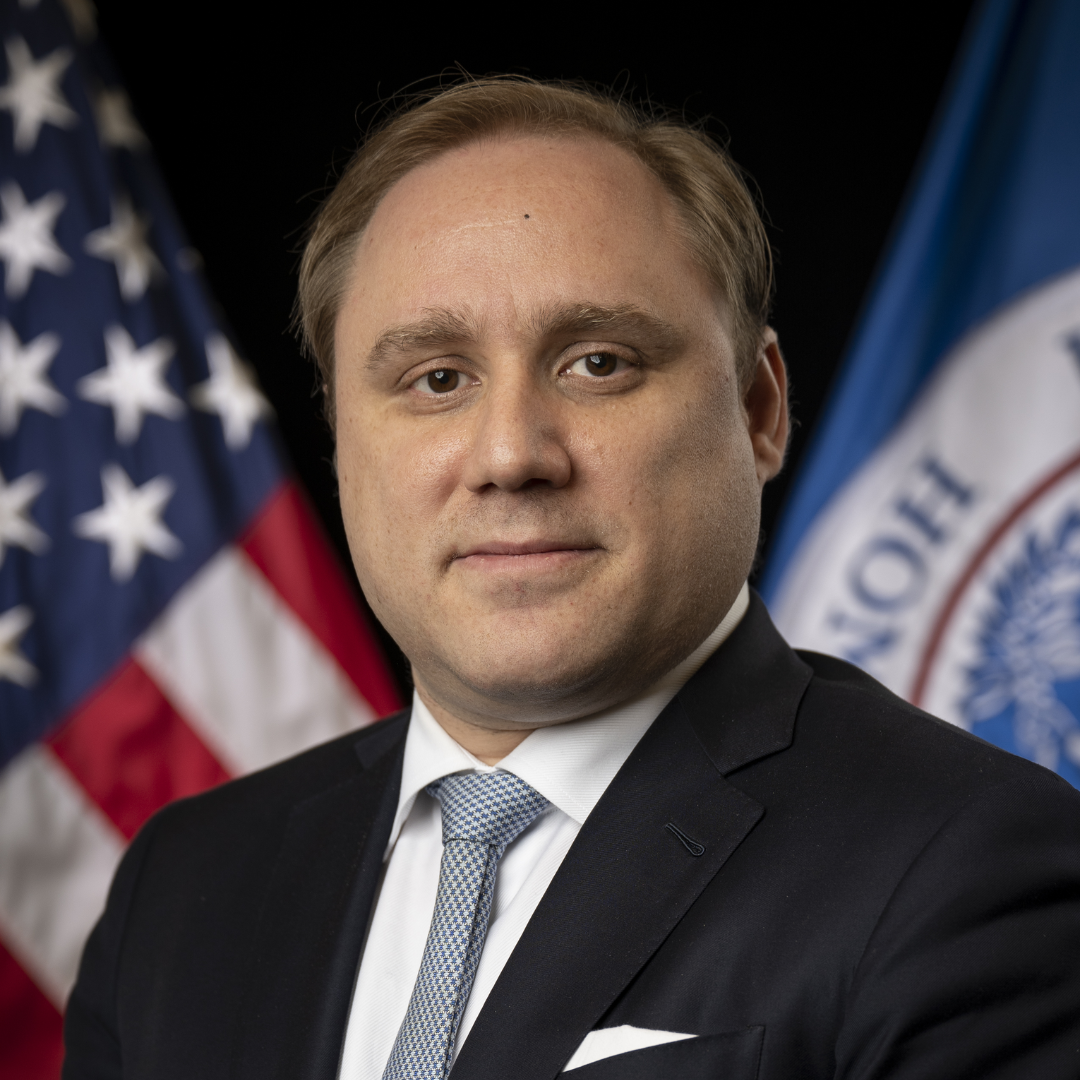
Dmitri Alperovitch is the Co-Founder & CTO of CrowdStrike (NASDAQ: CRWD, Market Cap: $85bn), Chairman at Silverado Policy Accelerator, National Bestselling Author (World on the Brink), and Host of the Geopolitics Decanted podcast.
He is the host and creator of Silverado’s popular “Geopolitics Decanted” podcast, dedicated to expert analysis of the war in Ukraine and as well as broader issues related to great power competition with China and Russia, security in the Indo-Pacific, industrial policy, semiconductors and cybersecurity.
Key Takeaways
(00:00-08:11) Journey to Defend Against Nation-State Threats
(08:11-16:42) From Cybersecurity to Global Strategy
(16:42-27:39) On Ukraine, Taiwan, and Policy
(27:39-37:04) The Strategic Significance of Taiwan
(37:04-44:58) The Future of Democracy
(44:58-52:34) Balancing Power, Principles, and Pragmatism
(52:34-1:07:25) The New Cold War
📱 Apple Podcasts | 🎧 Spotify | 🔗 iHeart
Explore the episode PodBook™
From Chess to Cyber
Dmitri’s interest in cybersecurity began with a childhood fascination with encryption, influenced by his father’s work in applied mathematics. He views cybersecurity as a constantly evolving battle, comparing it to an endless chess game against intelligent adversaries. This perspective has shaped his lifelong commitment to the field, emphasizing the strategic and adversarial nature of defending against cyber threats.
1. Journey to Defend Against Nation-State Threats
Dmitri explains the origins of CrowdStrike, highlighting the realization that nation-state cyber threats, particularly from China, Russia, Iran, and North Korea, were not being adequately addressed. He discusses how geopolitical factors drive these cyber threats and the role of these nations in encouraging cyberattacks on Western targets.
The conversation also covers the reasons behind CrowdStrike's success, including the critical timing of its launch, the failure of established companies like McAfee and Symantec to innovate, and the challenges of fostering innovation within large, bureaucratic organizations.
Geopolitics has always been at the root of cyber, at least for the last 15-plus years. And that was part of the incentives for starting CrowdStrike — realizing that this is only getting worse.
— Dmitri Alperovitch
2. From Cybersecurity to Global Strategy
Dmitri explains how his early interest in international relations and his cybersecurity work naturally led to involvement in government policy and law enforcement. This broader approach began with his work on Operation Aurora at McAfee, which deepened his engagement with policymakers in Washington, D.C.
He discusses his early prediction of Russia’s invasion of Ukraine, based on five key factors: distorted history, strategic geography, national identity, personal destiny, and Putin’s ego. Dmitri also draws parallels with Xi Jinping’s stance on Taiwan, noting similar historical and strategic motivations.
3. On Ukraine, Taiwan, and Policy
The conversation opens with Dmitri’s prediction that China may invade Taiwan in 2028, analyzing the strategic reasoning behind such timing. He contrasts his multifactor view of global conflicts with John Mearsheimer’s NATO-centric explanation for the Ukraine war, arguing that leaders like Putin act based on complex motives, including historical ambition and national identity.
Dmitri draws parallels between Russia’s stance on Ukraine and China’s on Taiwan, stressing that deep-rooted historical narratives fuel aggressive policies. He critiques the U.S.'s moralistic foreign policy since the 1970s and calls for more pragmatic diplomacy. Citing JFK’s handling of the West Berlin crisis, he argues that resolving the Taiwan issue through strategic engagement could stabilize U.S.-China relations, much like Cold War tensions eased after West Berlin.
Our foreign policy since President Carter's and Brzezinski's days in the late 70s has become very moralistic. We tend to see things as good versus evil. And look, there's a number of evil regimes out there. But if you have that confrontation of good versus evil and you are not looking at the path to coexistence with some of these countries, you're going to be fighting a lot.
— Dmitri Alperovitch
4. The Future of Democracy
Dmitri stresses Taiwan’s strategic value, noting its location in a region responsible for nearly half of global GDP and central to supply chains. Chinese control over Taiwan would allow it to project global power, weaken U.S. influence, and disrupt the security order the U.S. has upheld since World War II. He warns that a decline in American power could trigger more conflicts and empower authoritarian regimes, increasing global instability.
While acknowledging U.S. foreign policy failures like Iraq and Afghanistan, Dmitri argues that its promotion of democracy and human rights has been more positive than China’s authoritarian model. He and Alex explore the Chinese view of U.S. actions, stressing the need to understand differing perspectives to manage tensions. Dmitri concludes that the U.S. should lead by example, not force, offering a more attractive and innovative alternative to authoritarianism.
I don't necessarily agree that America has always had a benevolent foreign policy. We certainly made mistakes and I criticize a lot our foreign policy over the last 30-plus years where we've become too enamored with our hubris and power and decided that we are going to be the world's policemen and fix problems all over the world. I believe that was a great mistake.
— Dmitri Alperovitch
5. The New Cold War
Dmitri compares the Berlin Wall to the Taiwan Strait, arguing for a strong deterrent to prevent a Chinese invasion. He outlines three possible outcomes—successful deterrence, a Chinese invasion ending in victory, or a failed invasion—all with severe global consequences. The primary goal is to avoid war through strength and stability, not regime change.
He stresses the importance of U.S. economic and military superiority, supported by bipartisan initiatives like the CHIPS and Science Act. Dmitri downplays the role of propaganda in the Cold War, noting China won’t collapse like the USSR. Instead, the U.S. should maintain the status quo, deter aggression, and wait for China’s internal economic challenges to shift the balance over time.
Check the episode's Transcript (AI-generated) HERE.
Other Episodes

Godard Abel | CEO of G2
S 01 | Ep 6 Where You Go for Software: Reach Your Peak

Dean Stocker | CEO of Alteryx
S 01 | Ep 8 Turning Your Customers Into Your Biggest Champions

Peter Fader | Co-Founder of Theta CLV
S 01 | Ep 10 Turning Your Marketing Into Dollars